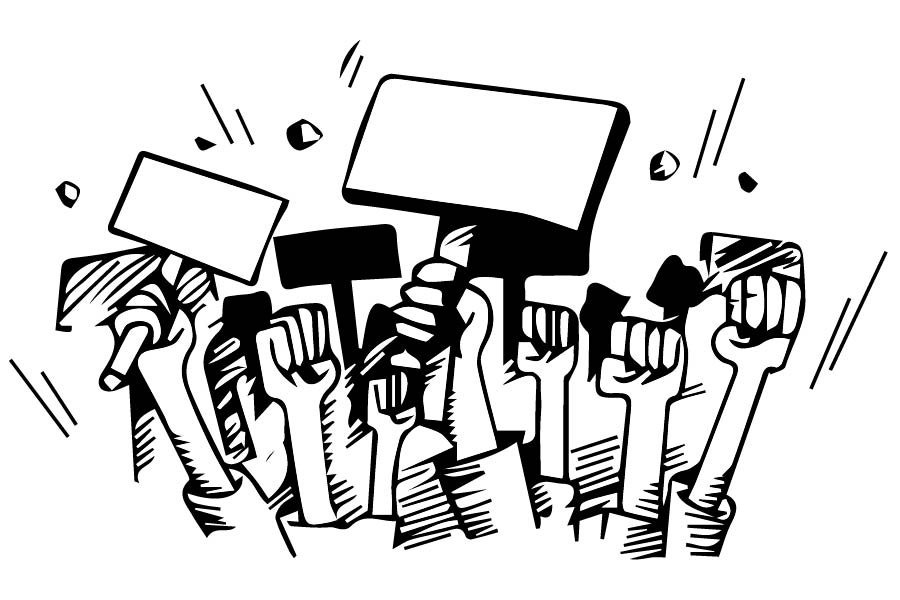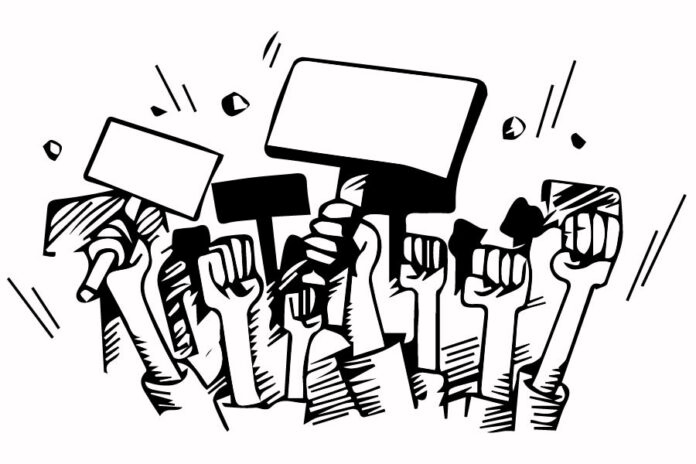
In an era seeking to fight injustice and inequality, nonviolence seems weak
 Worldwide social movements have struggled with the dilemma of whether to employ violence to get results. Most historical movements have come with some mixture of nonviolent and violent means. This doesn’t affect their success. However, in the context of recent violence in Charlottesville and elsewhere, it seems as if violent measures are perceived as bringing the best possible results.
Worldwide social movements have struggled with the dilemma of whether to employ violence to get results. Most historical movements have come with some mixture of nonviolent and violent means. This doesn’t affect their success. However, in the context of recent violence in Charlottesville and elsewhere, it seems as if violent measures are perceived as bringing the best possible results.
Nonviolent movements are challenging, especially when fighting against institutions that enact both physical and psychological violence. As for the social movements that Gandhi and Martin Luther King, Jr. engaged in, their impact is still debated heavily. Nonviolent resistance has been heavily criticized by people who doubt its effectiveness. To these people, there is a higher possibility that peaceful movements are more willing to compromise if violence isn’t even considered a viable option. For these campaigns to work, they require mass participation, time and patience despite pushback from those that want to see them fail.
But the argument for using physical violence is very much connected to the clamor for fighting inequality in the modern era. It’s not just equal rights that these activists are demanding. They want widespread changes, often including ending institutions and government policies that perpetuate inequality and injustice. When it seems that the nonviolent attempts at solving these issues haven’t done enough to create a more equal and just society, alternative means will grow in popularity.
This disillusionment with peaceful protest leaves a vacuum open to the argument for change “by any means necessary,” as Malcolm X phrased it in 1964. Violent disturbances force society to see how injustice is perpetuated by the government responding to violence with violence. Demonstrating oppression makes others understand that violence is the only available option against a strong, unyielding oppressor. This will, in turn, compel general society to interpret these violent disturbances as cries of desperation.
Current peaceful movements lack the strength and vitality of MLK or Gandhi in creating such an effective movement, with many activists just paying lip service to them for their peaceful activism. These activists are composed of either people who are against change or those who want change without violence. This can be summed up by something that moderate liberals and conservatives stereotypically say — that everyone has the right to protest, as long as property isn’t destroyed and people aren’t attacked and that working within the system is productive. This offers no pressure to force change, since people just stand as allies on the sidelines.
These people are often weak and lack any backbone. There is no strong belief in their argument anymore because others assume that their proposals will not bring widespread change. It is only a limited, compromised change that does little to shake the established order that these people vehemently oppose.
The only way to strengthen the success of nonviolence is to do research and understand how it has worked in the past. People must understand the underlying principles of social movements and how it only takes a strong movement to let the oppressing power destroy its own credibility with its cruel violence. The British empire’s repressive strength became no match for the Gandhi inspired mass movements that made India intentionally ungovernable.
In the United States, it took a strong, mostly peaceful civil rights movement in the 1960s to convince lawmakers and the general public that civil rights legislation was desperately needed. Violence remained in the periphery for both cases, hardening the resolve of the state to concede to change. If activists really want change through nonviolent means, then their movements must garner the patience, charisma, confidence, and popularity of MLK and Gandhi. In the end, they will not hurt their own communities but will help them without using any forms of physical violence.
Written by: Justin Chau — jtchau@ucdavis.edu
Disclaimer: The views and opinions expressed by individual columnists belong to the columnists alone and do not necessarily indicate the views and opinions held by The California Aggie.





